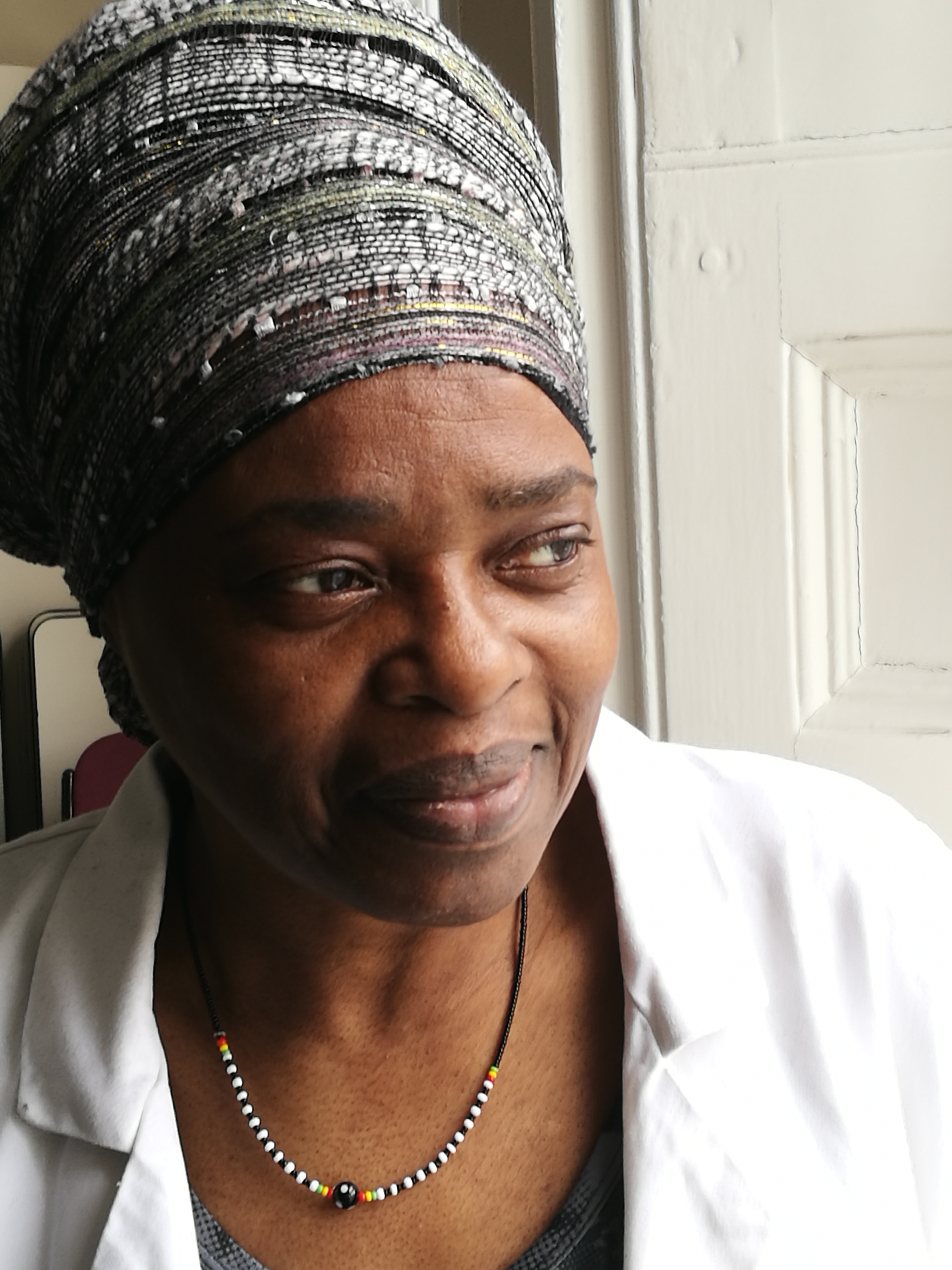Students Complaints Procedure
Table of Contents
1. Overview
2. Principles
2.1 Encouraging Feedback
2.2 Informal Resolution
2.3 Confidentiality
2.4 Special Needs
2.5 Accompaniment
2.6 Vexatious or "Time-wasting" complaints
2.7 Time Limit
2.8 Racial Equality
3. The Procedure Explained
4. Exclusions
5. The Informal Procedure
6. The Formal Procedure
Appendix 1 - List of Staff who can Help
Appendix 2 - Guidelines for Students
Appendix 3 - Guidelines for Staff
1) Overview
CICM is committed to providing a high quality service to its students through efficient and effective mechanisms. The Student Complaints Procedure is a mechanism by which students may seek redress, as far as possible, for any disadvantage, damage, injury or distress caused by acts or omissions of the College, its staff or any agents employed on the College's behalf. The College encourages students to report problems promptly in order that an appropriate resolution can be found to minimise any negative impact on a student’s experience at the College.
This procedure is intended to cover any complaint a student may have about services which are within the control of the College. As the College’s contractual relationship is in the vast majority of cases directly with the student, initial complaints should normally only be raised by the actual student complainant rather than by any third party on behalf of the student. Where exceptionally, a student wishes to raise a complaint through a third party, the College will require a signed written statement to this effect from the student. In such cases, correspondence with the third party will also be copied to the student complainant. Where a student has a disability, it is recognised that the use of a third party may be appropriate. Students should refer to Appendix 2 for information on how to deal with any other grievance they may have.
Should a student complainant wish to be legally represented, the complaint shall be referred to the Dean with the discontinuation of the matter being dealt with under the Student Complaints Procedure.
The College will ensure during the course of deliberations on complaints that the provisions of legislative requirements are complied with.
2) Principles
2.1 Encouraging Feedback
Students are encouraged to provide constructive criticism and feedback and will not be disadvantaged or victimised as a result of making a complaint.
2.2 Informal Resolution
There is an expectation that students will seek for their complaints to be dealt with informally as soon as possible, but throughout all stages the aim of the process is resolution of the complaint or problem.
2.3 Confidentiality
The College has overriding obligations under data protection legislation and the law generally. The College will facilitate access to information and documents relevant to the complaint while having due regard to privacy, confidentiality and the reasonable interests of any relevant third parties. Information will only be given to third parties outside of the College in accordance with the Data Protection Act, if required by law or with the consent of the student complainant.
The College will monitor and report annually on complaints raised but the collation of such information will be confidential and will not reveal identities.
2.4 Disability
i) This procedure will be made available in an alternative format if required (e.g. tape, large typeface);
ii) Interpreters will be provided as required at any meetings arranged under the procedures;
iii) Arrangements will be made for alternative meetings and/or accessible venues as required.
Disabilities & Dyslexia
If the complaint relates in some way to the College failing to meet the additional requirements of a disabled student or relates to an alleged breach of the Equality Act 2010, then the complaint should be raised in the first instance either with the College's Learning Support member. Should the complaint remain unresolved then the matter shall be forwarded onto the Dean. If the complaint remains unresolved then the student can instigate the Formal Procedure of the Student Complaints Procedure.
2.5 Accompaniment
A student and the staff member responsible for the delivery of the service complained about, are entitled to be accompanied at all stages of the complaint process by a person of his or her choosing. It is preferable however that the student or staff member presents his or her own case.
At this stage the accompanying person should not be a lawyer acting in a professional capacity.
2.6 Vexatious or "Time-wasting" complaints
While the College encourages students to complain about unsatisfactory practices, it is occasionally the case that a complaint may be judged to be vexatious or frivolous or to lack clear grounds for further consideration. If a formal complaint is considered by the Dean to be vexatious or frivolous, it will be summarily rejected by him/her. If a complaint is to be summarily rejected, then this will be done at the earliest possible time and with reasons given in writing to the student.
Students who are deemed to have made vexatious or malicious complaints may be subject to disciplinary action under the College's Code of Student Behaviour.
2.7 Time Limit
Complaints should be lodged as soon as possible and will not be considered more than three months from the relevant events occurring.
2.8 Diversity and Equality
The College is committed to eliminating unlawful racial discrimination and to promote equality of opportunity and good relations between persons of different racial groups. Student complaints will be monitored and assessed by ethnicity, gender, disability and age on an annual basis.
3) The Procedure Explained
This Procedure is divided into two parts: informal and formal.
Informal: The complaint is raised, either directly or in writing, with the person responsible for the delivery of the service or the person with immediate administrative authority for the area of work.
Formal: If the complainant is not satisfied with the outcomes of the informal part, the complaint is raised within the formal procedures by following two stages:
1. The complaint is taken by the student to the Dean for the purposes of convening a Resolution Committee.
2. If the complainant is not satisfied with the outcomes of Stage 1, the student can appeal.
4) Exclusions
Complaints about the following are excluded from the Student Complaints Procedure.
4.1 If the complaint is about assessment results then the student should refer to the Academic Director for guidance on the appropriate procedure. Students must raise any complaints about academic support (e.g. dissertation supervision) and course delivery with the appropriate academic member of staff at the point at which the problem becomes apparent. This provides an opportunity for such matters to be immediately addressed. Students should not wait until after the receipt of their examination results to raise such matters.
4.2 This procedure does not normally apply to the acts, omissions or disciplinary matters relating to fellow students. Complaints about behaviour of fellow should be raised with the Dean who will decide whether the complaint is of sufficient importance to invoke the Student Disciplinary Procedure.
If a complaint is submitted and it comes under any of 4.1-4.2 it will be summarily dismissed and a notice in writing will be sent to the student by the Dean.
Complaints by Former Students
Complaints by students who are no longer enrolled at the College must be raised within three months of the relevant events occurring and should be referred to the Dean for investigation only. Complaints will be investigated by the Dean whose decision in such matters shall be final as far as the College’s internal procedures are concerned. Complaints submitted by students three months after their enrolment has expired will not be considered by the College.
5) The Informal Procedure
The majority of complaints should be capable of resolution at this stage.
A student who is dissatisfied with any aspect of the College experience, outside of academic assessment, is encouraged to raise the cause of that dissatisfaction with the staff member most directly concerned. The staff member will listen carefully to the complaint, collect facts, and make informal notes as required.
If the staff member has immediate responsibility, then he or she will take reasonable and prompt action to try to resolve the complaint. A student may expect a response within 10 working days to the informal raising of the complaint.
If the complaint is not satisfactorily resolved by informal discussion with the person concerned, should approach the Dean in person or in writing. This is still the informal part of the procedures. A prompt written response should be expected.
Short notes will be kept by the staff member for monitoring and reporting purposes and to ensure that remedial action is carried through.
If the complaint is still not satisfactorily resolved, then the student should resort to the formal procedures.
If the complaint is against a member of the Executive Committee, then the student should proceed directly to the formal part of the procedures.
6) The Formal Procedure
Students should only resort to the formal procedure:
- when informal resolution has been sought and has failed;
- when the complaint is so serious as to warrant by-passing the informal procedure;
- when the complaint is against a member of the Executive Committee.
Stage 1
The formal complaint should be addressed in writing (noting that it is Stage 1 of the Formal Complaints Procedure) to the Dean. The Dean will investigate the complaint, and will acknowledge receipt of the complaint within 5 working days.
The letter of complaint under Stage 1 should include:
- complainant's contact details and student number;
- a statement that this is Stage 1 of the Complaints Procedure;
- the reasons why the previous actions to date have been unsatisfactory;
- a full description of the specific failings of the College in the delivery of the service concerned;
- the desired outcome sought by the complainant
Should the complaint be about the Dean him/herself, then the student should address the Stage 1 complaint to one the Joint Principal requesting that another senior manager be appointed to deal with the complaint.
Following investigation, a full response should normally be expected within 20 working days from the receipt of the complaint letter. Any recommended remedies will be implemented by the department concerned as soon as possible, and written confirmation of action taken will be sent to the Dean.
It is likely that most of those complaints investigated at Stage 1 will be resolved at this level. If the complaint is not resolved at Stage 1 then the student may seek to proceed to Stage 2.
Stage 2
The student must notify the Dean within 21 days from the date of written notification of the completion of the Stage 1 investigation of the intention to raise the complaint at Stage 2. As part of this process, the student will write a letter to the Dean requesting that a Resolution Committee be appointed.
The complaint letter under Stage 2 will include:
- complainant's contact details and student number;
- a statement that this is Stage 2 of the Complaints Procedure;
- the reasons why the previous actions to date or Dean' recommendations for resolution have been unsatisfactory;
- a full description of the specific failings of the College in the delivery of the service concerned
- the desired outcome sought by the complainant.
On receipt of the Stage 2 complaint, the Dean will check that the procedures up to Stage 2 have been fully implemented and may require that these be pursued further. The letter will be acknowledged by the Dean within 5 College working days.
The Dean may request additional documentation to determine whether it is appropriate for the complaint to be raised at Stage 2 or whether further clarification/investigation is required at Stage 1. The Dean may decide that the complaint should not proceed to Stage 2 should it be determined that the previous actions to date and/or the recommendations for resolution have been satisfactory. Where it is decided that a complaint should not proceed to Stage 2, the student can take their complaint to one of the Joint Principals.
Where a complaint proceeds to Stage 2, the Dean shall be responsible for convening the Resolution Committee and for making the appropriate administrative arrangements. The Resolution Committee shall consist of three persons:
- a member of the College's Board of Governors (as Chair);
- a representative of the Students’ Union or student body;
- a Senior member of the Academic Staff.
The Dean, or his/her nominee will act as Clerk to the Resolution Committee and will advise the Committee, as appropriate.
As far as possible, the hearing date will be within 30 College working days of receipt of the Stage 2 complaint. A longer time frame may be involved if the student is not available to attend over a vacation period.
Members of the Resolution Committee will have had no previous exposure to the facts of the case.
All parties to the complaint will be given notice in writing by the Dean not less than five College working days before the date of the hearing. This notice will include:
- the date, time and place of the hearing;
- all information relating to the complaint;
- advice that the parties have the right to:
i) present their case in person and/or in writing;
ii) be accompanied by another person;
iii) be present throughout the hearing except when the Committee is considering its decision.
All parties to the complaint should notify the Dean in writing of the names of any witnesses that they intend to call no later than seven days in advance of the hearing.
The Resolution Committee will investigate the complaint fully by allowing the complainant and the College staff member(s) who is(are) the subject of the complaint to present a written statement and to call witnesses.
Where either or both parties to the complaint do not appear at the hearing and have not submitted to the Committee Clerk any reasonable explanation for absence, the hearing may still proceed.
The Committee will, as a semi-independent body, attempt to resolve the circumstances so that the solution may be seen to be fair and reasonable. At the end of its deliberations the Committee will:
- Uphold the complaint in whole or part and, if appropriate, make recommendations to the College’s Executive Committee on the complaint resolution including any remedies to be applied
or
- Dismiss the complaint
If the complaint is to be upheld, the Committee will recommend a resolution to the Executive Committee, which will include, as appropriate, recommendations as to specific actions of remedy and for prevention or such events recurring.
If the Committee identifies issues broader than the individual complaint that require attention then the Chair will provide a written report, and recommendation as appropriate, to the Executive Committee.
The Dean will, within ten working days of the date of the hearing, notify the complainant in writing of the outcome of the Resolution Committee's deliberations and the reason for it, including any proposed resolution.
APPENDIX 1
Who to contact for help with this procedure
Students and staff members may seek guidance on the operation of these procedures from the following:
- Dean
- Personal Tutor
- Staff Member
APPENDIX 2
Guidance for Students
From the outset at the informal stage, think about what it is you are having trouble with - perhaps write it down as this will help focus your thoughts and talk about it with a friend to put it into perspective. Try your best to resolve things at the source of the problem and as quickly as possible. Indicate your problem and ask for a meeting with the person concerned to discuss its resolution. During the meeting state your case clearly and factually. State what it is you would like to be done to resolve the situation.
Remember that, like yourself, the other party/parties involved in your complaint will have rights that must be respected at all times. Disregarding the rights of others will serve no purpose and may reduce the likelihood of a satisfactory resolution.
If you would like confidential advice on how to proceed, see the list at Appendix 1 and consult one of them for guidance.
Every student can contribute to minimising the extent to which complaints arise. For example, a student can:
- Suggest to other students that they seek assistance;
- Promote mutual respect between individuals, whether members of staff or students, such that grievances or complaints are less likely to arise;
- Be aware of the College policies and guidelines that extend rights to students.
If you are proceeding to the formal procedures and are lodging a written complaint, you must include the following:
i) name, telephone number, student ID number, contact details;
ii) a detailed description of your complaint;
iii) a description of the steps you have taken to try to resolve the complaint; and
iv) an indication of the desired outcome.
APPENDIX 3
Guidance for Staff
Informal Stage
At the initial informal stage of the procedure, no formal record should be kept but staff may keep notes to assist them in resolving the complaint.
Any staff member who is involved in the resolution of an informal complaint who identifies an issue of broader application than the individual complaint case should draw the issue to the attention of either the Dean or the relevant responsible person.
Keeping the Student Informed
The student should be notified at each stage of the formal or informal procedure as to whether their complaint is accepted as justified, what action will be taken by the College to resolve the complaint and what options are open to the student if they continue to be dissatisfied.
Minimising Complaints
Every staff member can contribute to minimising grievances. Depending on the circumstances a staff member should:
- Ensure that students are given timely and explicit information on all relevant matters;
- Encourage students to ask questions and/or raise concerns;
- Seek students' feedback and listen carefully to comments;
- Be aware of the College policies and guidelines that extend to the rights of students.














